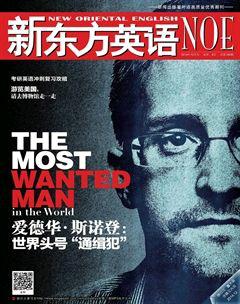承上啟下和首尾呼應在文書寫作中的應用
谷約

一篇質量上乘、行文流暢的留學文書既要有精準的用詞、多變的句式,還要有句間及段落間的自然過渡和順暢銜接,也就是所謂的承上啟下(transitioning)。要做好這一點,常見的方法有:①添加小標題;②使用關聯詞或過渡詞(如next、almost at the same time、finally、on the whole、for example、in addition、equally important、lastly);③使用過渡句或過渡段。很多申請者在寫文書時往往專注于一個個的事例,而忽視了若干事例之間的銜接,造成文章段落之間過渡不自然,甚至沒有過渡,從一件事突然跳到另一件事。還有一些申請者想在文章中使用倒敘、插敘等寫作技巧,但是沒有處理好不同內容之間的銜接,寫了幾段突然閃回一下,造成文章在敘事方面顯得雜亂無章。
和承上啟下相似的另一個文體技巧是首尾呼應(echoing)。首尾呼應是指文章開頭和結尾的內容遙相呼應,通常可以起到升華主題的效果。例如,申請者B在他的文書第一段提到自行車游:“At age 21, I finished college and was ready for the adventure of a lifetime—a bicycle trip from Beijing to Guangdong, a total of 2,400 kilometers (about 1,490 miles), covering eight provinces along the east coast of China.”這是一個非常吸引人的開頭,整篇文章也是圍繞自行車游展開,但令人遺憾的是,結尾段采用的是公式化的寫法,說自己的目標是學習管理以便回國之后在IT行業干一番大事業。雖然這種寫法無可厚非,但比起生動的開頭,結尾還是差了一點。我們建議申請者在結尾處再加兩句,與開頭呼應:“How about a bicycle tour across continental USA? It is not entirely out of the question.”短短兩句,自問自答,深化了申請者赴美求學的動機,使全文的主題更加鮮明,可謂首尾呼應的妙用。
案例分析
下面我們通過兩個案例來談談在文書寫作中如何運用承上啟下和首尾呼應。
文書案例1
B同學高中畢業申請去美國讀本科,他提供的中文原稿這樣開頭:“刻苦耐勞,這是我祖輩和父輩的傳統,我受他們的熏陶和培養,在學習和運動上毫不馬虎,成績名列前茅。我有強烈的同情心和責任感,我是我們年級中唯一一個代表我們學校參加省級機器人比賽的選手。”看完這段話后,讀者會一頭霧水,不知道這篇文章要講什么。申請者絞盡腦汁想在文書中展現自己的優點,想到什么就寫什么,導致句子之間沒有很好的過渡和銜接,尤其是最后兩句“有強烈的同情心和責任感”和“參加省級機器人比賽”之間沒有任何邏輯關系。這段文字傳達的信息和申請者的愿望是背道而馳的,不但沒有展現他的優點,反而暴露出他思維跳躍、邏輯混亂、文筆一般的缺點。我們對B同學的英文文書做了針對性的修改。以下是修改后的英文范文。
I was fortunate to have grown up in a nurturing environment, where my parents encouraged me to follow my own academic and non-academic preferences. They wanted me to learn and to explore because I was interested, not because it was prescribed by someone else. My mother often tells me that when I was little my frequent words were “let me do it.” I would spend long hours doing projects using my scissors and all types of other tools. I would offer to ignite (點燃) the gas stove when my parents cooked. It was later that I had to ignite and put out a fire of another kind.
評析:文章開頭交代了“我”成長的環境和“我”父母的教育理念,建立起“我”喜歡自己動手的形象。本段最后一句應該會引起讀者的強烈興趣:作者又點燃和撲滅了什么火?這句話為下文做了很好的鋪墊。
My passion for robots dates back to the summer vacation right after I graduated from elementary school. Mom supported me and allowed me to take classes on robot-making. In the beginning, I just needed to learn some basic steps involved in installing several components, by referring to the process chart, so that the robot could move forward and backward. The real challenge came later when I was assigned to conduct a robot simulation (模擬) in which the robot was to put out fire, a candle fire to be exact. The robot had to find the fire source in an enclosed space and use a fan, water or carbon dioxide to put it out. It took me a long time to fit into the limited space of the robot fire-extinguishing parts. External factors such as the low room temperature at the test time were not favorable for firefighting. But I kept on trying until the robot succeeded in identifying and putting out the fire. The first time I participated in a regional robot-fire-extinguishing contest, I only received an honorary mention, because my robot hit the wall several times due to its lack of slip-resistance on the overly smooth contest ground.
評析:這段主要是記述“我”參加地區機器人滅火競賽的經歷,也就是第一段里提到的“ignite and put out a fire of another kind”。
Very soon, I was in high school. My robot teacher called one day to tell me that I could skip the regional qualifying contest and directly enter the national-level competition that year. Although I had not played with robots for about one year, I decided to seize this good opportunity to showcase my abilities. In order to avoid the mistakes I had made previously, I changed my sensor (傳感器) for a more sensitive one and modified the platform (操作平臺) for fire-extinguishing to a faster speed. After updating all the hardware that I could think of, I learned that in national contests, all participating robots were required to follow specified programming codes. The former process-chart mode could not be applied any longer. This rule change came only less than one month before the contest. I forced myself to memorize the frequently-used codes and formats within a very short time period. Together with my partner, we successfully programmed our robot, named Huo Huo (meaning “Fire, Fire”) and got it working. Huo Huo performed well and helped us win our Number 2 ranking in the national contest. As a result, I also became qualified to enter (使報名參加競賽) Huo Huo for the 2010 international contest held in Columbus, Ohio.
評析:這段主要敘述“我”參加全國機器人滅火競賽的經歷。最后一句再次起到承上啟下的作用,明確告訴讀者“我”還參加了國際競賽。
There were obstacles leading up to the trip to the US for the contest. Because I had to miss two weeks of class, my school was reluctant to approve my leave of absence. I had to talk to my class teacher and my school principal and promise them I would not allow myself to fall behind in my studies. Finally, they yielded. Before the contest, all contestants from China gathered in Shanghai first. Unexpectedly, our teacher, the team leader for Beijing, failed to get his visa. I found myself having to shoulder responsibility for all five of the Beijing contestants. I was surprised that my fellow teammates thought I was more mature and therefore more suited for the leadership position anyway.
New problems emerged when I checked my robot in Shanghai. All the battery had been used up due to a loose power switch. I decided to buy a new battery from a robot company in Shanghai, and had to disassemble and reassemble the robot completely because the battery was tied to the motherboard. The new battery brought a much higher voltage (電壓) to the robot, so that its speed was almost 1.5 times faster. During the trial test, my previous mistake showed up again: Fast speed led the robot to slip into the walls or turn the wrong way. I had no choice but to change the former programming, so that Huo Huo could successfully adjust to the higher speed. In spite of so many unforeseen difficulties, I competed in the contest and came third out of 80 plus high school contestants from around the world and was the highest of the students representing China.
評析:這兩段主要敘述“我”參加國際級競賽的經歷,同時突出了“我”除了擁有豐富的專業知識之外,還有另外兩個閃光點:領導能力和處理突發問題的能力。
During the whole process of the contest, I received support and encouragement from my friends, teachers, and my parents through emails and long distance calls. The day before my contest, my parents called and took turns to chat with me. They talked about things in a light-hearted manner, but avoided to mention the big event coming up the next day. I knew they wanted to divert my attention and put my nerves at ease. They were ever so skillful in the way they motivated and encouraged me to go all out and give my very best.
評析:本段進行了“閃回”,開頭(During the whole process of the contest)明確提示讀者“我”要采用倒敘的方法,回顧一下參賽時發生的事情。
I know wherever I am I can always count on my parents support. It is my turn and desire to make them proud.
評析:開頭段寫父母為“我”的成功創造條件,結尾段再提父母,不僅和開頭段呼應,而且立意比開頭段更深,是一個感人的結尾。
文書案例2
申請者D在國內學的是城市規劃專業,希望去美國進一步深造,申請該專業的碩博連讀。以下是他的個人陳述范文。
An ancient Chinese verse goes: “From the side, a whole range; from the end, a single peak;/Far, near, high, low—no parts alike./Why cant I tell the true shape of Lushan?/Because I myself am in the mountain.” (Lushan is the name of a scenic mountain in China, which has lent inspiration generation after generation to artists and poets.) So simple and yet so profound, the poem captures the real motivation behind my application for the graduate program in Urban Planning: to escape the tunnel vision from within Lushan and to gain some fresh and new perspectives on a whole range of issues that interest me as an aspiring urban planner—issues such as what other countries perspectives are on Chinas rapid urbanization and environmental deterioration, what lessons western nations have learned in their own developmental processes, to what extent western philosophies and approaches are applicable to China, to what extent the Chinese should preserve their own cultural, historical, socio-economic, and geopolitical sensitivities, and how nations can develop in ways that make sense both environmentally and humanistically. I know I have my own bias and my own opinions, but I am acutely aware that a true intellectual, no matter what the subject matter, is one who, instead of rejecting differing points of view, readily embraces them as valid and enriching.
評析:開篇引入唐詩《題西林壁》起到兩個作用:①提示讀者“我”想表達的主題和全文內容都會圍繞“廬山”展開;②我想出國深造的動機是走出“廬山”,突破隧道視覺、井蛙之見,獲得全新的有關城市規劃的知識、理論、見解和實踐經驗。這段開頭具有濃郁的中國風,在普遍公式化的留學文書中非常搶眼。
A recent American sports commentary is a case in point (例證). It spoke highly of the athletic skills of the Chinese basketball team playing at the Olympics. In fact it went so far as to put the Chinese on an equal par with the American NBA players. However, said the commentary, the reason why the Chinese could not put up a decent fight with the Europeans or North American teams was not due to the lack of assiduous (刻苦的) training, but was due to the fact that they had too much of it. Rigid and monotonous training seven days a week and eight hours a day had taken its toll (造成傷害). The team was physically and mentally punished to the point of a collective breakdown. It took someone outside of “Lushan” to see what had caused the lack-luster performance—the Chinese team had simply not rested enough to play!
評析:這一段通過美國體育專欄對中國籃球隊的看法說明要看清“廬山真面目”完全有必要聽取、吸收和借鑒局外人的看法和經驗。
Speaking of assiduous training, I have had my share. While at the Department of City and Resources of Sun Yat-sen University in Guangzhou, a top university in South China, I read history and anthropology (人類學), crisscrossed (往返奔波于) China including the westernmost interior during my numerous field trips, improved my skills in drawing and planning, and under the guidance of my professor, completed a design project for the city of Qingyuan of Guangzhou Province. I also read architectural and urban planning journals and research papers from English-speaking countries to keep myself abreast with up-to-date information.
In July of 2005, shortly after I graduated from college, I was offered an assistant planners position in the neighboring city of Shenzhen with an environmental protection company. Shenzhen, being the most progressive and the fastest growing metropolis in China, has been experiencing tremendous challenges on the city planning front. In the short time I have been with the company, I have already had hands-on (親身實踐的) opportunities to work with internal and external customers in the designing and development phases of one of the citys upscale residential districts. My specific contribution has been to address sewage treatment, underground installation and hazardous material disposal. Even as my confidence level is on the rise, I am conscious of the fact that further training and professional qualifications are called for if I ever want to speak on important planning issues like an authority.
評析:第三段首句中的speaking of是典型的過渡語。既承接上文提到的中國籃球隊的刻苦訓練,又開啟下文,敘述“我”在城市規劃方面所受到的訓練,即課堂上的學習和畢業后的工作經驗,從而說明“我”有一定的基礎和實力攻讀此專業,同時“我”也意識到自己的本領和資歷有限,需要進一步深造。
I was born in Dingnan, a small city of Jiangxi Province, not too far away from Lushan. Since then my family has relocated several times to half a dozen cities because of my fathers job assignments. The towns and cities that we have called home are rather small, inconspicuous (不顯眼的) and certainly not as prosperous as the larger cities. However, as a child, I enjoyed being in those cities because they all seemed to have the type of natural, unspoiled qualities that stood in sharp contrast to the likes of Guangzhou, Wuhan, Beijing and Nanchang, cities I have stayed for an extended period of time where pollution, automobile exhaust fumes, noise, and badly conceived notions of city planning are figuring predominantly in the landscape, replacing the beauty and character these ancient cities have always been known for. It worries me to see that people in these cities are hustling and bustling in their relentless pursuit of material wealth, while not being terribly bothered by the onslaught (襲擊) of the forces that are eating away at the quality of life. It is perhaps because they too are living in “Lushan” that their view of the larger picture is being blocked.
評析:再次回到“廬山”這一主題,談到“我”的出生地和少年時代生活過的小城鎮與長大后去的大城市有許多不同,其中最大的差別就是糟糕的城市規劃使大城市失去了自然風貌和本真。生活在這些大城市中的人猶如生活在廬山里,全然不知高質量的生活應是什么樣的。
It is a sense of urgency and a mission that prompts me to go back to school, where I hope I can acquire and sharpen the tools necessary to “finish the job.” It all begins with getting out of “Lushan.”
評析:二戰早期,丘吉爾為爭取美國的軍事援助,在一次演講中說道:“Give us the tools, and we will finish the job.”文章結尾引用了這句話后半部分的內容,并在最后再次提到“廬山”,與開頭遙相呼應,表達出“我”要走出“廬山”的迫切愿望,深化了赴美留學的動機。

